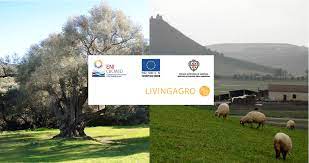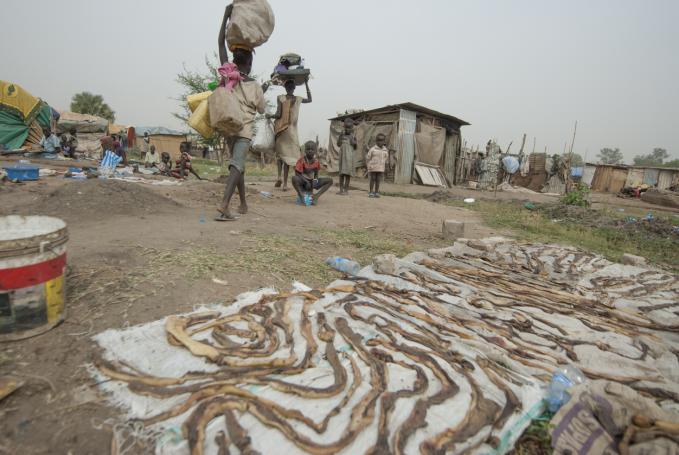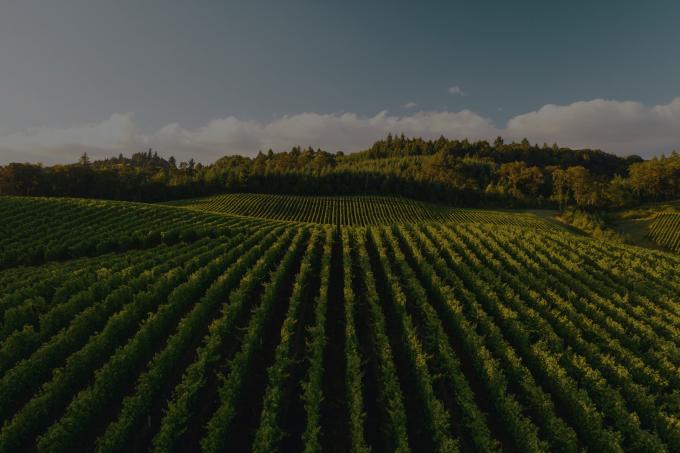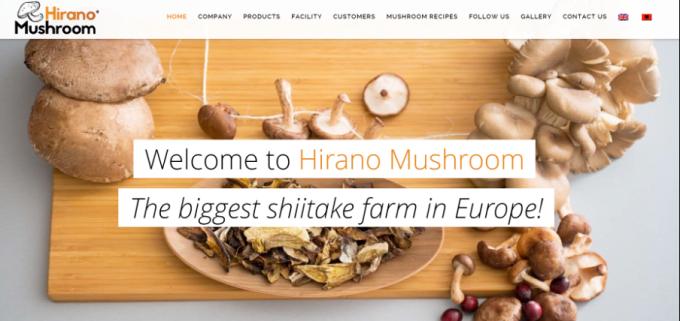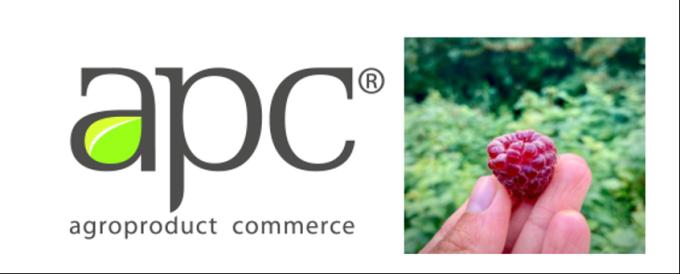GOOD PRACTICE
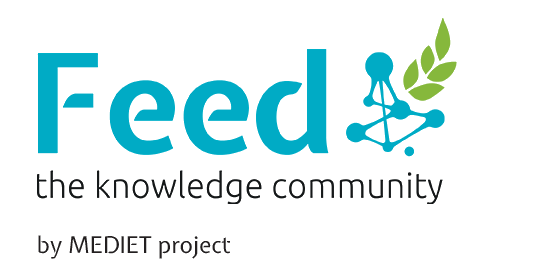
Through the establishment of the Local Seed Bank in Hebron, farmers reclaimed the right to save, breed and exchange seeds to preserve biodiversity and prevent local varieties from extinction. If not farmed for three years, lands in contested territories face the threat of being confiscated. Providing local seeds became also a tool to help farmers to avoid expulsion from their lands. Producers are systematically sharing part of their seeds with the Bank, thus reaching more and more farmers and improving food security for the whole community.
You must be registered to see all the content
Due to the difficult expansion of agricultural areas, water shortages and climate change, returning to the use of local seeds is the only alternative for survival. The seed system has changed a lot over the past decades with the control over the seeds lying more and more in the hands of a few large companies and less in the hands of the farmers. This has affected the genetic diversity as well as the farmers' rights. This has become a pivotal issue for many farmers and has started a public opposition against this development. In the last 20 years, a movement for seed and food sovereignty has also risen in Palestine, which is based on reclaiming seeds and biodiversity as commons and public good. That includes the farmer's rights to save, breed and exchange seeds, to have access to diverse open-source seeds. Background and context 1. Generally, Palestine is a community of villages with rich diversity system. 2. Like Mediterranean conditions, the climate is semi-temperate, with availability of water resources. The farming system is intensive. 3. Economic activity: Agriculture including Greenhouses (Vegetables), open field (Vegetables and Cereals), home gardens (MIX), livestock. The creation of a significant number of jobs, especially for women, to increase families' incomes. 4.The social system is the family: system based on co-operation. The main crops: Tomato, Potato, Cucumber, Eggplant, Pepper, Melon and Carnation flowers. 5. Palestine has been characterized over the history by the farmers who love their land. So, a variety of seeds are planted and handed over from one generation to another but in the last period this value has decreased. Impact: 1.Through the bank of local seeds, farmers may be encouraged to participate in this bank in order to take the seeds they want. 2.Through educating and training rural farmers on how to save seeds and how to reproduce them. 3. Selling seeds to farmers, nurseries and farms. 4.Transfering the innovations and increasing the women innovators and local farmers in the other regions and for the local community. 6.All villagers can become members of a community seeds bank. 7. Increase the local seeds amount during the coming years.
Influence: 1.Increase the income of rural households up to 500- 1500 $ in the year, and this depends on the area of cultivated land and the different types of vegetables as well as providing food to the family throughout the year. 2. Needy families are provided home garden infrastructure 3. Agronomists and beneficiaries are trained on the local seeds concepts and the project idea. 4. Needy farmers are provided with fertilizers and local seeds. 5. Unemployed people are provided with daily wages.
Outcome: 1. Determine local seeds varieties used by farmers as genuine seeds alternative to imported seeds. 2. Produce big amounts of seeds per unit regarding the main vegetable varieties to be used as stock that annually increases and that is sold at a minimum price. 3.Promotion of local products from high-quality seeds (organic). Identify all regions that are interested in local seeds and have the reasons to plan it again. 4. Maintain the local varieties. · Local Seed Bank won the Equator Prize, 2014 Award organized by the United Nations Development Agency (UNDP) for its Seed Bank Initiative. · In recognition of its developmental role in the Palestinian Agricultural Sector, UAWC Local Seed Bank was named by the US Food Sovereignty Alliance (USFSA) along with the Community-to-Community Development of Bellingham, Washington, as co-recipients of the 2014 Food Sovereignty Prize. · The Committee of Prince Talal International Prize for Human Development 2021 announced the “Seed of Hope-Seed Bank Project – Palestine” as a winner for the second category targeting Zero Hunger. · Local Seed Bank- UAWC is one of the winners of the Ockenden International 2022 prize. The project was selected for its innovative gardening project ‘Promoting food Sovereignty for Palestinian Refugees Living in Camps through Rooftop Gardening using local seeds'. Output: 1.Local germplasm improved and conserved. 2.Green cover increased by using mainly the home gardens for seeds production. 3.Seed's production with organic method may reduce the environmental contamination, as well as preserve and rationalize the natural resources, e.g., recycling the plant and organic residues for producing compost (organic fertilizers), no use of chemicals for pests' controls and nutrients. 4. Many varieties of seeds are on the market as local alternative which may have an impact on biodiversity in general. 5.Reduce the environment pollution resulting from the overuse of chemicals. 6. Increase cultivation area through encouraging farmers to return back to local seeds.
All the people, the variously constituted and structured entities, institutions and companies that are positively or negatively influenced, directly or indirectly, by the decisions and actions of the organization. They are usually divided into \"primary\" and \"secondary\". The first are those directly influenced by the action of the organization and in whose name it defines its mission. Usually defined as “beneficiaries”, they are losing this definition due to the liability that this implies, justifiable only in a purely welfare approach.
1. Small rural women's innovators: consider them the main pillar of supporting seeds bank. The needs: developing their innovations, supporting families' rising incomes, increasing the experience level and collecting the varieties needs.
2. 1000 local farmers holders: local seeds determined by survival and increasing the experience level in the context.
3. Agronomists: training them and rising the experience of the agriculture and environment concepts, biodiversity and agro ecosystem.
4. Workers: job creation needs within the project’s duration.
5.Coordinator: the experience of the main coordinator in this innovation and the administration skills, working with groups, networking.
Main beneficiaries and needs addressed
Direct beneficiaries
1.local farmers: farmers are familiar with local seeds varieties.
2. small rural women: developing their innovations, supporting families-rising incomes, increasing the experiences and collecting the varieties needed.
3.agronmists: -training them and rising the experience of the agriculture and environment concepts related the biodiversity and agro ecosystem.
4. workers: job creation needs within the project’s duration.
The Local Seed Bank guarantees the following: food sovereignty, conservation of biodiversity and preservation of all those culinary traditions that would otherwise be lost. The Local Seed Bank not only collects seeds, but also transmits knowledge, which is not transferable, with training (theoretical and practical) for youth and children, and issues many publications. The innovation has different levels:
1. Contribute to the achievement of food security for the community and promotion of sustainable agriculture.
2.Improve seed production techniques.
3. Select the most healthy, vigorous and productive plants.
4. Maintain the local seeds and support the famers finding a local bank.
5.Rely on local seeds used by farmers as genuine seed alternative to imported seeds.
6.Provide farmers needs of vegetable seeds based on several varieties firstly due to lack of many varieties in the market as a result of the siege and closure.
7.Promotion of local products of high-quality seeds as organic seeds.
8. Preserve natural ecosystems and sustain rural livelihoods and protect the local biodiversity. In addition to:
9.Contribute to strengthening economic and social situation for rural women and smallholders innovators.
10. Empowerment of developing and enhancing the seeds producers and activate their experiences.










